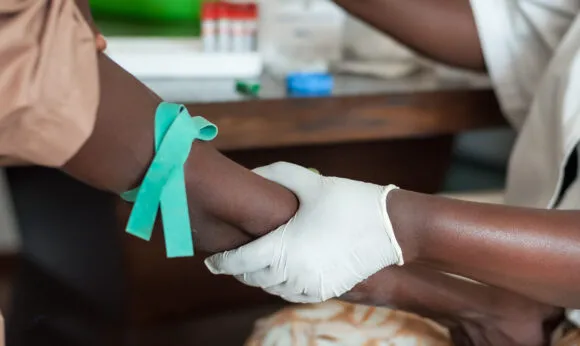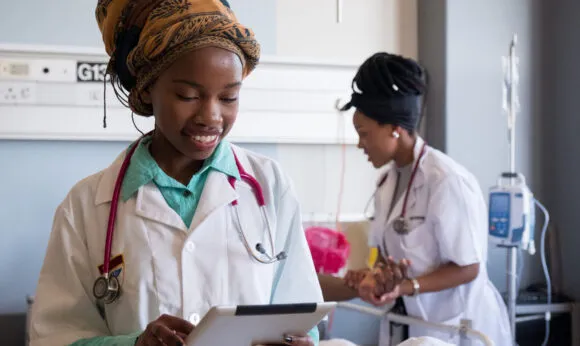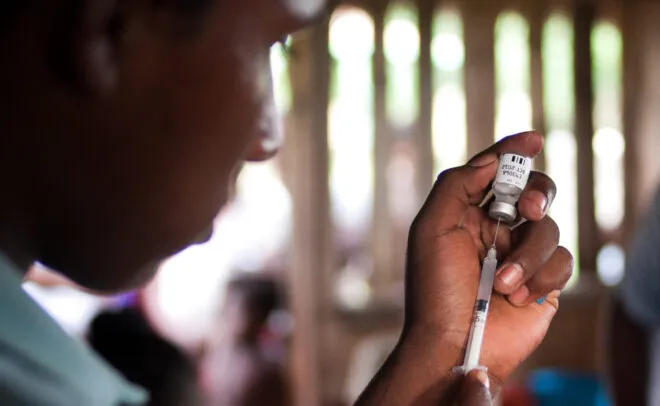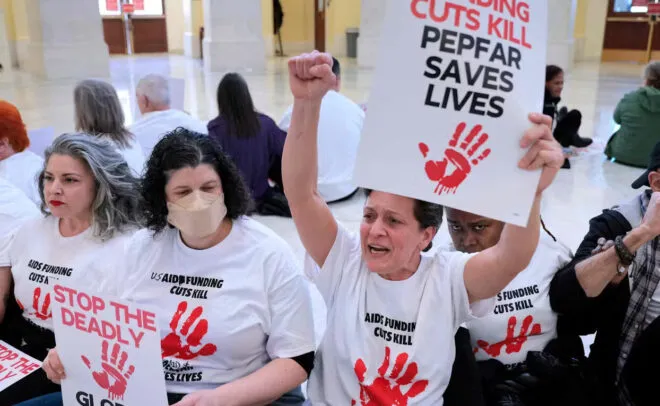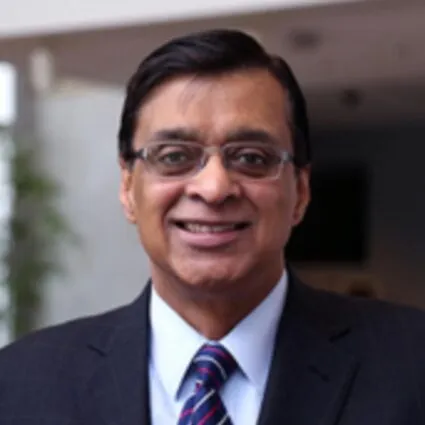
Allyala Nandakumar
Driven by a belief in equity and accountability, I work to build sustainable, country-led health systems that empower people, optimize impact, and ensure that limited resources are used effectively where needs are greatest.
Dr. Nandakumar is a Professor of Practice and leads the Global Social Work and Public Health Lab. He directs research on the economic impact of social work and examines how global health investments—particularly through PEPFAR—affect health systems and outcomes. His work bridges economics, public health, and social policy to advance more equitable and sustainable solutions.
Dr. Nandakumar is an internationally recognized expert in health financing, with deep experience in health economics, policy, and systems strengthening. He was the first Chief Economist at the Office of the Global AIDS Coordinator and later served in the same role at USAID’s Global Health Bureau, where he led efforts to increase domestic health spending in low- and middle-income countries. At USAID, he also helped build internal capacity on health financing and advised on strategic investments to improve equity, efficiency, and sustainability of global health programs. He led a $63.5 million OGAC-funded project to increase country spending on HIV/AIDS services and focused on leveraging economic transitions in low and middle-income countries to boost health expenditures. At USAID, he worked on building internal capacity on health financing issues.
He currently leads the technical working group for the Activity-Based Costing and Management (ABC/M) initiative, partnering with governments, donors, and multilateral institutions to generate routine HIV service cost data in ten countries. He also chairs the Technical Working Group on Equity in the HIV Response, which released its report at the 2024 International AIDS Society Conference. His work with USAID India has supported the COVID-19 response, urban health, and the creation of the SAMRIDH Blended Finance Facility, which won the State Department’s Social Impact Award in 2023.
His current research examines the spillover effects of PEPFAR investments on all-cause mortality, economic growth, education, and other health indicators. This research has informed discussions with Congress and stakeholders on the value of investing in the HIV response. His other research has focused on understanding how economic transition can be leveraged to increase country spending on health, the fungibility of donor assistance, factors affecting technology adoption in low and middle-income countries, the linkages between health expenditures and maternal and infant mortality.
Previously an Indian Administrative Services Officer, Dr. Nandakumar emphasizes governance, accountability, and resource management in his work. He advocates moving from paternalistic health policies to empowering consumers and adopting holistic approaches to household wellbeing. He has held academic and leadership roles at Harvard School of Public Health, RTI International, Abt Associates, Deloitte Consulting, and the Bill & Melinda Gates Foundation. His research spans topics such as HIV risk in adolescent girls, the health impacts of disability and violence, and the positive externalities of PEPFAR investments. He has contributed to global strategies on National Health Accounts and resource tracking, and has served on expert panels convened by the World Bank, USAID, the Rockefeller Foundation, and MIT. His work is grounded in a vision of equitable, accountable, and sustainable health systems responsive to both national priorities and global challenges.
Dr. Nandakumar holds a Master of Science Degree in Mathematics from Bangalore University, specializing in the General and Special Theory of Relativity, and a MAPE and PhD in Economics from Boston University. He has conducted research in numerous countries, including Bangladesh, Egypt, Ethiopia, India, Jordan, Kenya, Lebanon, Myanmar, Mongolia, Rwanda, Tanzania, Tonga, Western Samoa, Uganda, United States, Sudan, Yemen, and Zambia.
